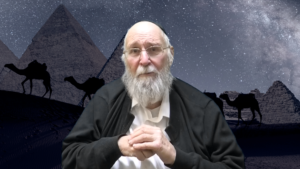- Faith ⬦ Read ⬦ Shabbat ⬦ Weekly Torah Portion
The Ultimate Test of Faith – Parshat Vayeira
What is so special about the test of the Akeida, that to this day we recall this event for our merit?
There are several amazing topics in this week’s parsha. One of the main topics is the Binding of Isaac or Akeidat Yitzhak, an event which occupies a very important place in Jewish history. Every day in the morning prayers and especially on Rosh HaShana, the Day of Judgment, we recite the Akeida, and in its merit we ask for forgiveness and to be saved from Divine punishment (Rashi on Genesis 22:14).
The story of the Akeida is presented in our parsha: “And it came to pass after these things, that G-d tested Avraham, and He said to him, ‘Avraham,’ and he said, ‘Here I am.’ ‘Take your son, your only one, the one you love—Isaac—and go to the land of Moriah”(Genesis 22 1-2). Avraham Avinu (“our forefather”) was faced with a difficult test: to sacrifice his only son as an offering to G-d. Avraham did not ask questions; he got up in the morning and unquestioningly went to fulfill the will of G-d.
Although Avraham Avinu’s test was very difficult, many commentators ask a poignant question. Over the generations even regular people have been subjected to similar trials and stood up in them heroically, as has happened during the Crusades and other events. They chose to suffer the death of their children rather than a life of denial of G-d and His Torah. Moreover, Rabbi Natan notes: “And it seems to us that even ordinary people would pass the test if G-d were to explicitly tell them to slaughter their children.” All the more so, people have passed such tests when they were not explicitly commanded by G-d. So, we would naturally expect that Avraham Avinu, who did hear the command explicitly from G-d, would surely pass the test.
To understand this matter better, we need to define the concept of “standing up in the test.” It means putting a person in a position where he could go either way. It is possible that he might pass the test, or he might, G-d forbid, fail it. It is well known that our holy Rebbe, Rabbi Nachman of Breslov, warned us very strongly that a person should not put himself in a position where he might be tested. Regarding the prayer (in the morning blessings), “And do not cause us to be tested or brought to disgrace,” Rabbi Nachman explained: “Either a test or a disgrace,” means that if they do not stand up in the test, G-d forbid, they will be disgraced. Despite this, when Rebbe Nachman was young, he used to ask G-d to test him (Shivchei HaRan 16. This was a particular behavior which he alone practiced since he was on a very sublime spiritual level, and he had his own hidden reasons for doing this. This is certainly not an example for how we should behave as a general rule.) And he testified that when he did find himself facing these tests, he had tremendous difficulty standing up in them, but despite the difficulties, he was always successful. In any case, we can understand from this that a test is only considered to be a proper test when it is so difficult that it is almost impossible to pass it. However, our ancestor Avraham had been explicitly commanded. Considering his spiritual level plus all the devotion to G-d that he had exhibited all the days of his life in sacrificing himself for the sake of the Creator, surely, he should have had no problem passing this test. If so, what is so special about the test of the Akeida, that to this day we recall this event for our merit?
Every day in the morning prayers and especially on Rosh HaShana, the Day of Judgment, we recite the Akeida, and in its merit we ask for forgiveness and to be saved from Divine punishment!
Rabbi Natan explains that the reason the test was so difficult was because it was actually his faith that was being tested, and that is why the test was so much harder. Avraham Avinu had been childless for many long and difficult years and merited to have a son only after multiple promises from the Creator, as the verse says, “And G-d said, ‘Indeed, your wife Sarah will bear you a son, and you shall name him Isaac, and I will establish My covenant with him as an everlasting covenant for his seed after him’” (Genesis 17:19). HaKadosh Baruch Hu kept His promise and Isaac was born after a hundred years of yearning.
Isaac is, therefore, the son that HaKadosh Baruch Hu promised would carry on the succession of Avraham’s faith and whose seed would multiply like the stars in heaven (Genesis 15:5). At this time Isaac, his only son, was 37 years old and had not yet married. If Avraham were to offer up Isaac as a sacrifice and to slaughter him as G-d had commanded him, how would the promise that Isaac’s offspring would multiply occur? How could it be possible for both things to happen? If HaKadosh Baruch Hu promised him that from Isaac his offspring would multiply like the number of stars in the sky, how could it be possible for him to literally follow G-d’s command and to offer Isaac up as a sacrifice?
Thus, the real test had to do with having simple faith. Let’s try for a moment to imagine if we were to be facing such a trial—that we didn’t have any answers to the questions that were hounding us. Our hearts would try to find “creative solutions,” to distort the situation, giving us an inaccurate way of understanding the command in a way that would be convenient for us—because we were, after all, “seeking the truth.” Since G-d had promised that our progeny would be through Isaac, we would conclude that G-d certainly did not actually mean that we should really offer him up as a sacrifice (G-d forbid). So, we would be faced with finding a creative solution to the conundrum—something “outside the box.” Just the thought of simply and honestly fulfilling G-d’s literal command without asking questions would not have occurred to us.

If our ancestor Abraham binds Isaac his son, how will the promise of the Creator be fulfilled?
And this was the high spiritual level of Avraham Avinu who stood up in the test. These questions bothered him—and how. But he put them all aside and went to fulfill the unambiguous command of the Creator without understanding how the promise to multiply Isaac’s seed would be fulfilled when G-d’s command to sacrifice him completely contradicted this promise. That wasn’t his business. He just had to do his part and fulfill G-d’s will.
We can understand this from the dialogue between Avraham and the angel of G-d. The angel said to Avraham: “Do not harm the boy or do anything to him,” etc. Avraham said to the angel: “I will explain my complaint before You. Yesterday, You said to me (Genesis 21:12): ‘for in Isaac will be called your seed,’ after that you said (Genesis 22:2): ‘Bring him up as burnt offering.’ Now You say to me, ‘Do not stretch forth your hand to the lad.’” From here we can understand that Avraham’s main test and self-sacrifice was the desire to know what he must do to fulfill the will of the Creator. This is why G-d answered Abraham: “I did not say to you, ‘slaughter him,’ but rather, ‘bring him up.’ You have brought him up and that’s enough. Now take him down” (Rashi on Genesis 22:12).
By the way, we will add an interesting anecdote here. The answer that G-d gave to Avraham—”I did not say to you, ‘Slaughter him,’ but rather ‘Bring him up as a burnt sacrifice.’ You have brought him up, now take him down”—seems strange. It is true that these things were said with the intention to test Avraham, but there must be some meaning to what was actually said: “Raise up Isaac and bring him down.” Elsewhere, Rabbi Natan explains the meaning of this: Isaac was from the aspect of holy “gevurah” (strictness or judgment). All the toughest and harshest judgments were included in Isaac, which would not allow for any manifestation of procreation and chessed (kindness). In order to sweeten the judgments and the gevurot, he had to nullify himself completely. Isaac’s self-sacrifice during the Akeida, when he was willing to give up his life and totally surrendered himself to the will of G-d, led to the creation within him of the chessed (the aspect of kindness) and a sweetening of judgments.
This provides us with a clear explanation of G-d’s words: “I did not tell you to slaughter him,” because indeed G-d’s intention was to raise Isaac up as a sacrifice only in order to sweeten the gevurot. Then G-d said, “You have brought him up, now take him down,” because he had already nullified himself with self-sacrifice during the Akeida. Now that the side of chessed (kindness) and salvation had been created within him, he could merit to having children. Thus, we see that G-d’s command to raise him up as an offering is actually what caused the fulfillment of G-d’s promise that the seed of Isaac would multiply. Not only is there no contradiction, but quite the opposite is true: it was precisely the Akeida that enabled Isaac to connect to the aspects of chessed and procreation.
(Based on Likutei Halachot, Matana 5:47, together with Hilchot Aravit 4:14)
- AkeidahAvraham Avinubinding of IsaacbreslevBreslovchessedDay of JudgmentDivine punishmentDvar Torah for Parshat VayeiraemunahfaithfeaturedforgivenessGenesisgevurahguarding the covenantJewishjudaismkindnesslife's testsmeritmorning prayersParashat Vayeiraparshat VayeirapromiseReb NosonRebbe NachmanRosh Hashanasacrifice of isaacShivchei HaRanSpiritual levelsstrictness or judgmenttrialVayeira
- 1 comment























One Response
Isaac was 37, yet he was referred to as a lad and a boy. How does that make sense?